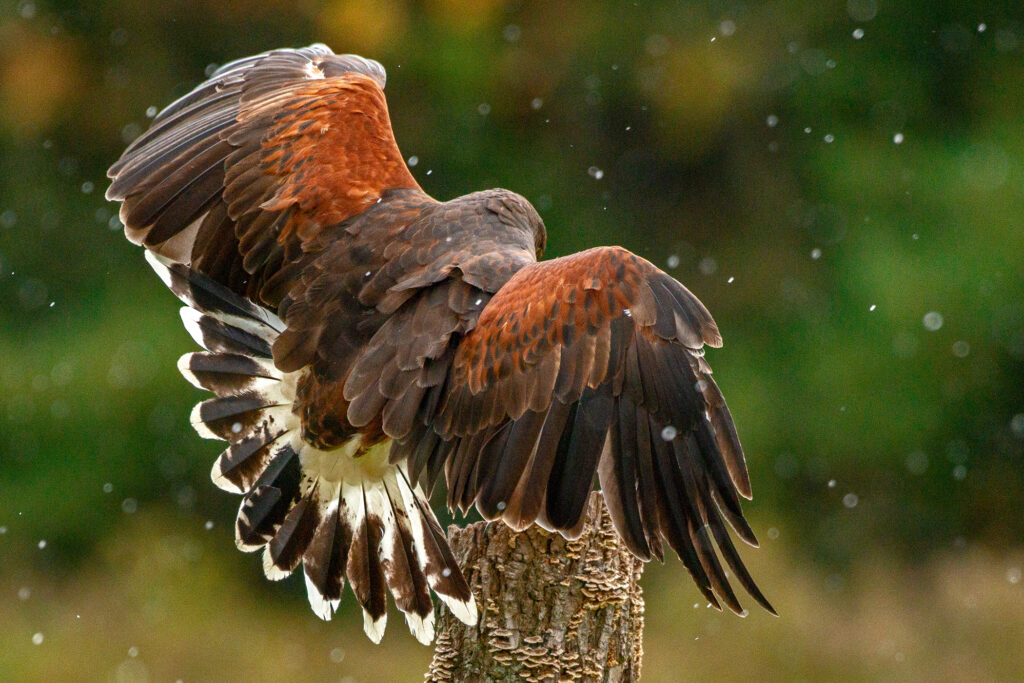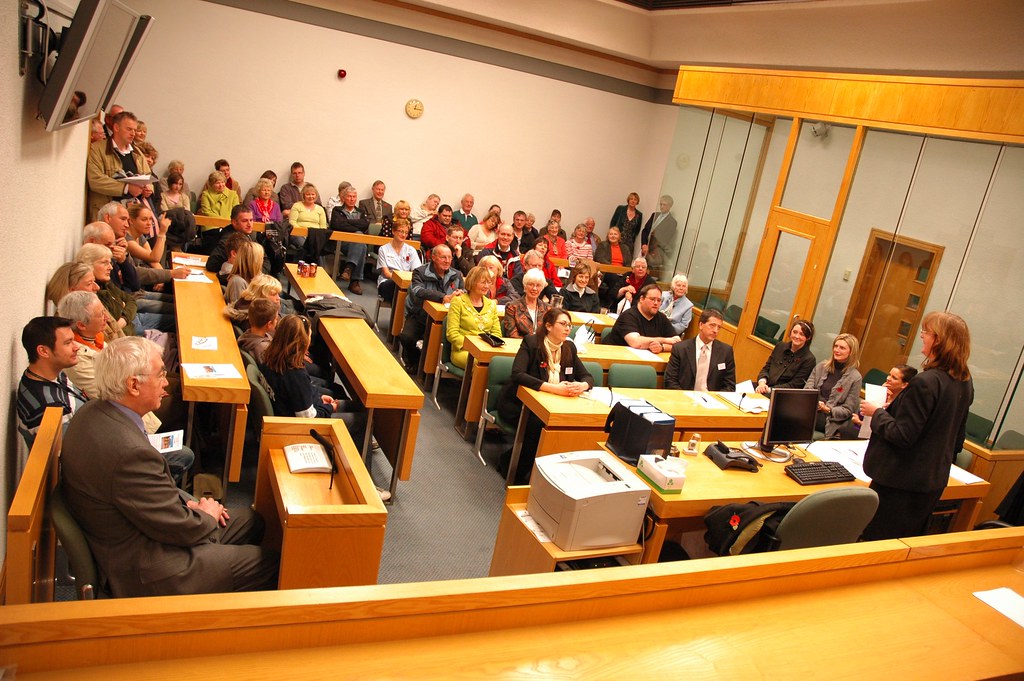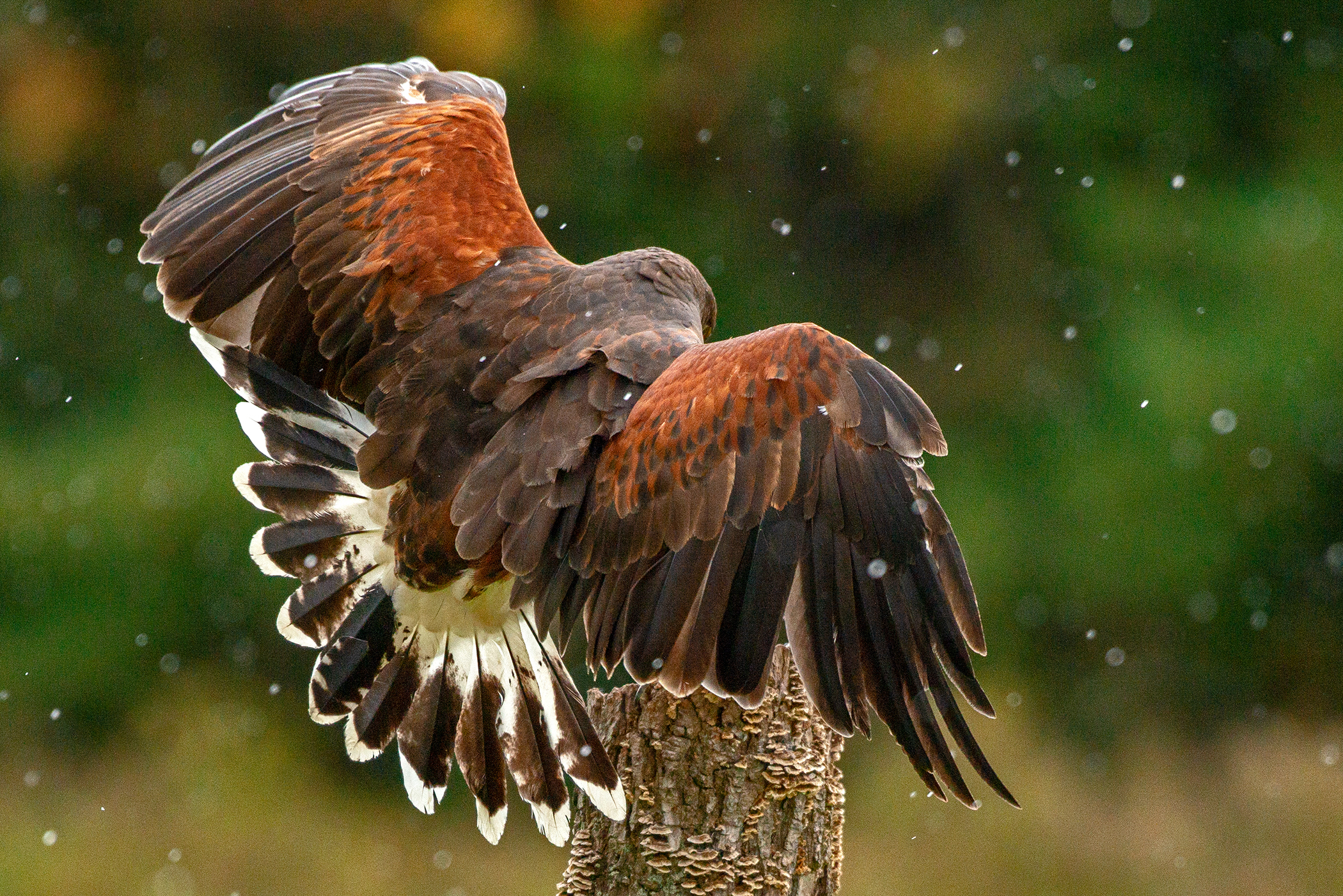Bolton Abbey poacher: The right to live in this beautiful and attractive world is as much for other wild animals as it is for humans. Their rights are also strong like ours towards this nature. But such an incident happened in a place in Europe which is still reported to be hellish and cruel. Bolton Abbey estate is located in a place called North Yorkshire. A large number of different species of plants and animals are found here. The locals earn their living by extracting a large number of wild resources from this place. One such day, a man named Michael Watt entered this forest in October for the purpose of poaching. There he was accompanied by a powerful hunter. His name was Harris Hawk. Later it was learned that they were actually engaged in wildlife trafficking there. Later it was learned that they were not only involved in wildlife trafficking but also in the brutal killing of them. At that time, various information was found in the Yorkshire Post about this. It is clear from this incident that this is not only illegal hunting but also a planned torture on the animals.

Search and arrest
The Rural Task Force of the police in Threshfield stopped Bolton Abbey poacher in a van and searched it. When they arrived, they found a bloodied rabbit tied to the vehicle. The arresting team was horrified by the scene. After the rescue team rescued the rabbit group from there, they noticed that their vehicle had many other tools associated with the dangerous and illegal activity of trafficking. Such as falconry equipment and traps.
Bolton Abbey Estate had previously banned the poacher from entering the area. They had been expelled from all the places where they smuggled wildlife. A local police team in Yorkshire had been monitoring their movements for a long time and finally arrested them.
Trial and sentencing
Bolton Abbey poacher Mr. Michael Watt was charged with two poaching charges by the police. He was also found guilty of several wildlife cruelty acts. He was also charged with obstructing the police. But when the case first came to trial in March, the accused pleaded guilty to the first two charges. But Michael Whyte denied obstructing the police. He pleaded guilty in July and was sentenced at Harrogate Magistrates’ Court. The accused were sentenced to 10 years in prison and banned from keeping any pets. The court ordered the accused to register any dogs in their home with their name and address. The judge told Bolton Abbey poacher that he would never again enter any forest and would not admit to it. If he committed any such act after his sentence, the court would take stricter action against him. The court also fined the accused a large sum of money.
This type of CBO use – where a person is prohibited from keeping birds of prey or ferrets, prevented from trespassing, or even controlled by their dog – is described by North Yorkshire Police as an ‘unusual case’, particularly in the context of poaching and animal cruelty.

Conclusion
Poaching usually refers to the act of illegally entering a forest, protected area or someone else’s land to hunt animals or birds. But unnecessarily torturing wild animals is a very different matter from a humane point of view. In the case of Bolton Abbey poacher the matter has been called very cruel. The scenes of holding a bloody rabbit found in his car or brutally trapping or killing other animals have been considered very disgusting. In the trial of Michael Watt, the judge has not only given a harsh sentence but also sent a message to the society that if someone enters the forest illegally for the purpose of poaching wild animals and brutally kills them, the judge will also take strict action. By sentencing this accused, who was sentenced to ten years, the society has become more heated about this law. This punishment of Bolton Abbey poacher has not only provided true deterrence and motivation in the society, but also has established an important security for animal lovers. As a result, wild animals will be able to live healthily in nature. The next generation will be more aware of these wildlife species and these animals will be able to reproduce and escape the existential crisis.

